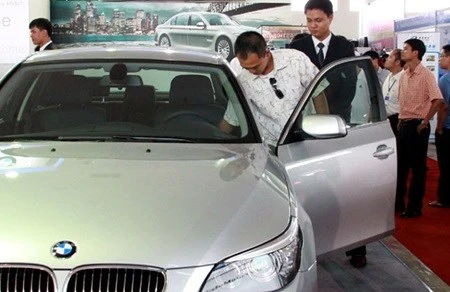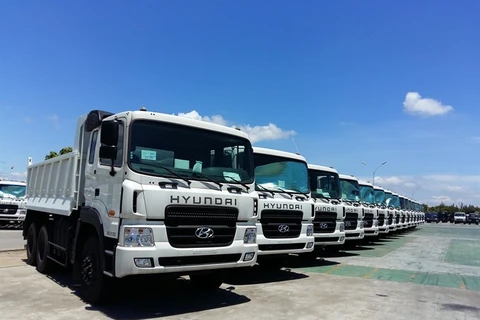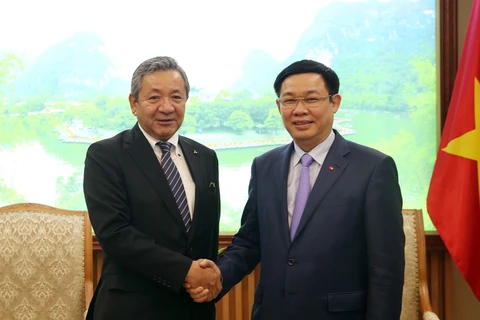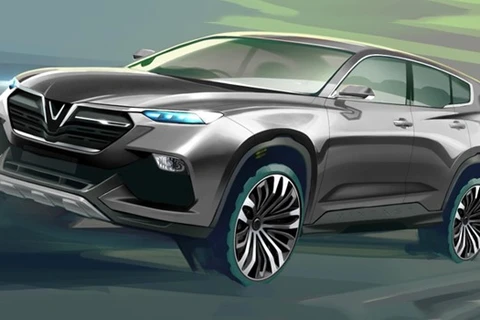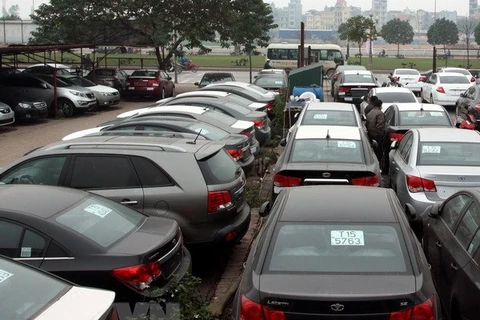Hanoi (VNA) - Some 1,000 cars worth 94 million USD were imported to the Vietnamese market in January, reports the General Statistics Office.
This marks a record drop of 86.2 percent in volume and 38 percent in value compared to the previous month.
The drop comes after auto businesses, including Toyota Motors Vietnam and Honda, stopped importing autos due to the government’s Decree 116, which tightens control over quality, technical safety and environment protection of imported autos.
Speaking at the government’s recent monthly press conference, Minister and Chairman of the Government Office Mai Tien Dung, said a number of embassies and organisations had sent letters to the Prime Minister proposing him to direct relevant ministries and sectors to reconsider the decree.
Dung said the Vietnam Automobile Manufacturers’ Association had submitted four letters of recommendation to the government to remove difficulties, saying that the provisions in the decree were inappropriate.
Meanwhile, several associations, such as Japan Business Association in Vietnam, and foreign direct investment joint ventures have repeatedly proposed the government to delay the implementation of Decree 116 by at least six months.
Dung said there were three major issues arising out of the decree troubling auto businesses and organisations.
The first is that the importers must obtain a Vehicle Type Approval (VTA) certificate issued by authorities in the exporting country. Dung explained that VTA was not a certificate of the State body but of authorised agencies or associations of the exporting countries, which aimed to ensure the origin, quality and value of the vehicle.
Such authorised agencies and associations will also be responsible for recalling the vehicles if they have faults during the production process. This is to ensure the rights and interests of automakers and consumers alike, Dung said.
As for the second issue, Dung said the decree states that the inspection agency will randomly select one unit of each batch to check. The check will be conducted on every batch of imported autos. This regulation will prove to be more costly and time-consuming in testing vehicles. And it is the customer who will have to incur the cost as businesses will ensure their profit.
Dung said the government was considering the issue.
The third problem posed by Decree 116 is that it requires automakers to have a testing route of 800m, with minimum 400m straight, before rolling out the vehicles in the market. According to automakers, this condition will require them to pay more, including registration fee, cost of land and cost of building testing routes.
Dung said Prime Minister Nguyen Xuan Phuc had assigned the Government Office and relevant ministries and sectors to consider the above-mentioned problems. The recommendations would not only ensure the government’s demand on domestic auto production but also the country’s implementation of international standards that Vietnam was committed to, Dung said.
Decree 116’s regulations are being evaluated as a technical barrier for auto importers to overcome. Dung, however, said all countries were applying necessary measures to ensure the quality of imported products as well as the rights and interests of consumers.
Further explaining the issue, Dung said a batch of BMW autos previously imported to Vietnam was found with a lot of problems related to procedure and origin of the vehicles, in addition to the fact that they were used cars. “If we do not check them carefully, the consumers will be the most vulnerable,” he said.-VNA
VNA

